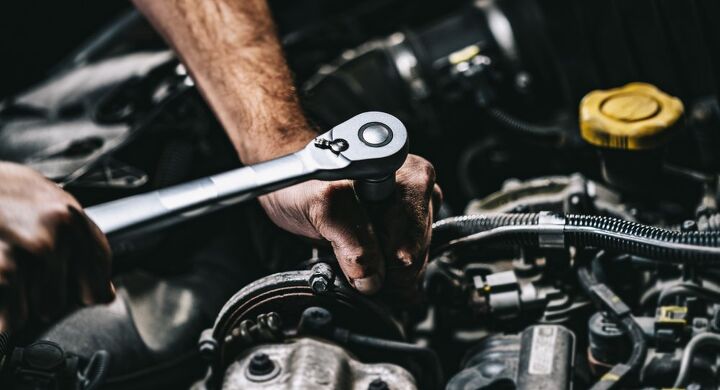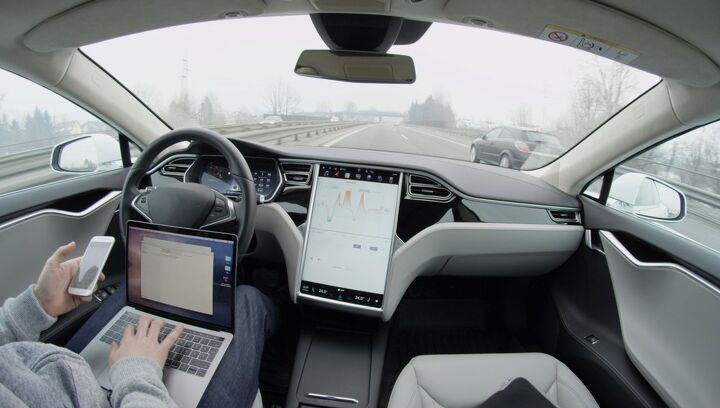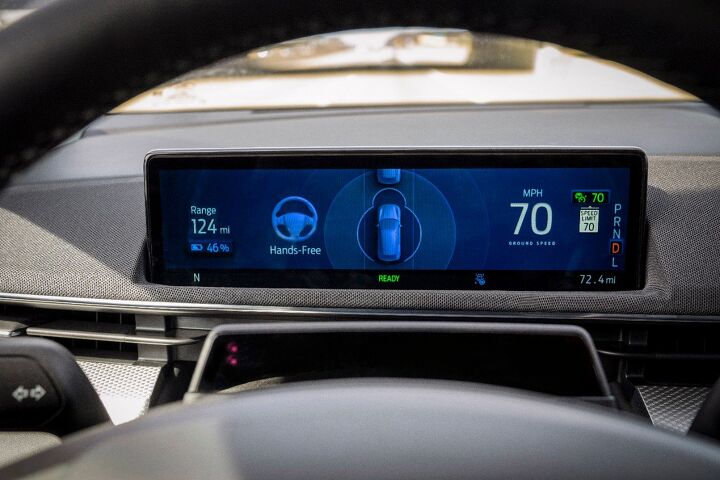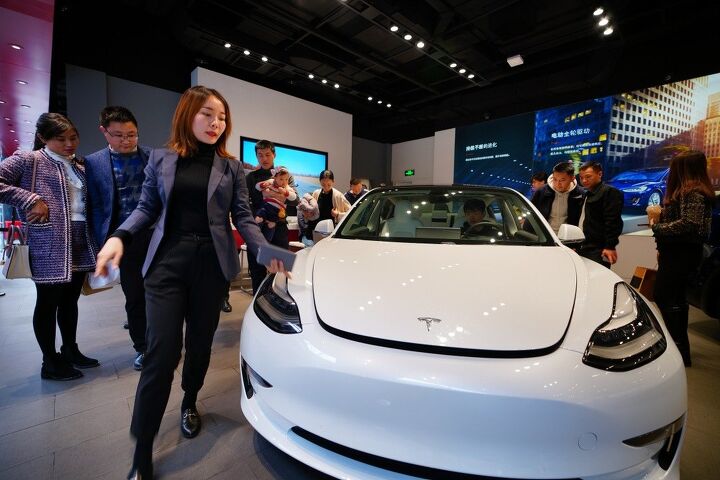#data
Right-to-Repair Movement Gets Federal Attention
While the right-to-repair movement is fighting a national battle, the brunt of the action has been taking place on America’s coasts. Consumer activists are taking on multinational corporations that don’t want you to modify your mobile devices, affix aftermarket components to your vehicle, or have complete access to the data that’s amassed by the staggering number of products that are needlessly networked to the internet. After years of petitioning the government, often while arguing with high-paid lobbyists, the group achieved a major victory in Massachusetts in 2020. Voters decided that automakers should not be allowed to withhold information from the vehicle’s owner or use it as a way to prohibit them from taking their car into independent repair shops (rather than manufacturer-certified service centers) or tinkering with it themselves.
Now the federal government is getting involved. Joe Biden has signed an executive order that effectively forces the Federal Trade Commission (FTC) to take regulatory action that would settle the matter. But we don’t really know if that’s going to lead to a market where customers are free to treat their property (and private data) as they wish, one where the manufacturer holds all the cards, or simply result in a regulatory minefield displeasing all parties.
Mercedes-Benz Accidentally Shares Consumer Data
Mercedes-Benz inadvertently leaked the private data of some of its customers. The good news is that the number of affected people was alleged to have capped somewhere around one thousand at the time of this writing. But the bad news is that this wasn’t like having your e-mail or phone number getting out there. Contents reportedly included customers’ social security numbers, self-reported credit scores, driver licenses, addresses, and credit card information.
While the odds of you personally being affected remain low, the circumstances in which this took place are becoming increasingly common. Customers and interested buyers entering personal data into company and dealer websites between 2014 and 2017 had their data stored via a cloud storage platform. But it wasn’t as secure as it should be and Mercedes is now blaming the vendor for the security breach and subsequent embarrassment.
IIHS Claims Marijuana Legalization Causes Crashes
It’s always nice to get a break from the endless stream of industry marketing materials about electrification, though this week’s impromptu theme still involves going green. Following news that General Motors is considering changing its drug testing policies to exclude marijuana, there has been heavy coverage of an Insurance Institute for Highway Safety (IIHS) study claiming states that have legalized recreational use of cannabis are seeing more crashes.
But the framing seems wildly irresponsible as it fails to highlight the problem being heavily tied to individuals operating a vehicle under the influence of marijuana and alcohol combined. It’s more or less what the IIHS attempted to do in 2018 with help from the Highway Loss Data Institute (HLDI). Our guess is that the duo is seeking out fresh reasons for insurance companies to raise rates in regions that have legalized pot because even their own research complicates the issue.
Driving Dystopia: Tesla Activates Driver Monitoring Protocols
There’s a small camera just above the rear-view mirrors installed in newer Tesla models. If you haven’t noticed it before, it wasn’t of any particular relevance. But it certainly is now.
Tesla has decided to activate driver monitoring protocols in an effort to avoid liabilities whenever Autopilot fails and motorists unexpectedly find themselves merging off a bridge. After rummaging through the wreckage and collecting errant body parts, investigators can use the vehicle’s camera data to see what was happening moments before the car hurled itself into the ravine. If it turns out that the driver was totally alert and did their utmost to wrangle the vehicle as it went haywire, a colossal payout for the surviving family is assured. But if that camera catches them slipping for a microsecond, the manufacturer has all it needs to shift the blame onto the deceased driver.
Report: The Government Is Already Using Connected Cars to Spy on You
A recent report from The Intercept has confirmed some of our biggest fears about connected vehicles. Apparently, U.S. Customs And Border Protection (CBP) has struck a deal with Swedish mobile forensics and data extraction firm MSAB for hardware that allows the government to not only siphon up vehicle data but also use it as a backdoor to access the information on your phone.
While this shouldn’t be all that surprising in an America that’s seen the Patriot Act pave the way for all sorts of government spying, the arrangement represents another item in a toolbox that’s frequently used against regular citizens. CBP is alleged to have spent $456,073 on a series of vehicle forensic kits manufactured inside the United States by Berla. Internal documents suggest that the system was unique and of great interest to the U.S. government, with a multitude of potential applications pertaining to automotive data. But what surprised us was just how much information carmakers thought their products needed to keep tabs on and how that plays into this.
Auto Lobby Now Recommends Driver Monitoring Cameras
On Tuesday, the largest automotive lobbying group released a handful of safety guidelines related to driver monitoring for vehicles equipped with driver-assistance features. It’s pageantry designed to convince you and the rest of the world to embrace technologies that have already led to unsettling privacy violations. The Alliance for Automotive Innovation making recommendations for the industry is farcical because the AAI already represents just about every major player on the field, suppliers included. The only real outsider is Tesla, which the organization decided would make an excellent scapegoat for the broader tech agenda.
But there’s still merit to the discussion, especially if the only proposed solution is to let the industry watch us inside our cars 24/7.
Pandemic Changes Car Buying Plans, Or Has It?
The pandemic has changed car buying plans for nearly three out of four shoppers who intended to buy in the next six months. New research from Comscore Automotive Data Mart, cited in a story today by Auto Remarketing, indicated the pandemic tops the concerns of four out of ten who had intended to buy.
Consumer Reports Worried Tesla Could Spy on Customers
Consumer Reports has taken umbrage with Tesla’s new cabin camera designed to monitor the driver by suggesting there might be some privacy concerns. While that sounds like the understatement of the year, we’ve seen other companies (e.g. Cadillac) deploy similar devices with little pushback. Uncoverable lenses on our laptops and phones are creepy enough. When the auto industry starts affixing driver-monitoring cameras to the dashboards of automobiles, you have to sit back and ask yourself how much longer you’re willing to be a party to the prologue for George Orwell’s Nineteen Eighty-Four.
Trapped like a dog inside the hot car of progress, we’ve been attempting to honk the horn until someone pays attention. Mercifully, Consumer Reports doesn’t seem to have forgotten its roots in consumer advocacy and is walking up to our window with a rock. It’s demanding more privacy protection for vehicle operators, and not just from a single automaker.
Report: Chinese Military Bans Tesla Vehicles From Facilities
The Chinese military has decided to ban all Tesla vehicles from housing complexes and bases after citing them as a potential security risk. Since the cars use an array of ultrasonic sensors and cameras to create a panoramic view used for advanced driving features, China is concerned the American brand could use the cars to covertly map out sensitive areas.
Going Android: Ford and Google Enter Six-year Data Partnership
On Monday, Ford and Google jointly announced a strategic, six-year partnership to accelerate the automaker’s connected vehicle and data service programs. Framed as part of Ford’s natural evolution into an information focused mobility firm, the release was loaded with corporate buzz phrases that we had to clean up. But the gist is that Ford would like to leverage Google Cloud for its products, meaning all future Ford models will be running Android operating systems starting in 2023.
This clears a pathway for improved integration from Google Assistant, Maps, Play, or any third-party applications catering to the incredibly popular OS. Unfortunately, it also highlights how gaga automakers are getting about data for the umpteenth time.
Report: Hyundai Embracing Subscription-based Features, Buying Boston Dynamics
Following reports that Hyundai Motor Company managed to purchase American engineering and robotics firm Boston Dynamics from Japanese financial conglomerate SoftBank for a cool $921 million, we’ve learned that the South Korean automaker has also fallen into embracing on-demand features. The trend, which is sweeping through the automotive industry to our dismay, basically involves manufacturers hiding vehicle options behind a subscription paywall instead of just letting you purchase the options you wanted upfront.
That means tomorrow’s car shopper might find themselves buying a vehicle that’s already fully loaded from the factory only find themselves forced to unlock heated seats or an upgraded sound system via monthly payments. In our estimation, the whole concept is ludicrously wasteful, diminishes the private resale values of automobiles, and seems like the kind of corporate nonsense reserved for dystopian fiction novels.
Automotive Alliance Manages to Delay Revised Massachusetts Right to Repair Law
The Alliance for Automotive Innovation (AAI) has managed to stall enforcement of a ballot measure recently passed in Massachusetts that expands access to data related to vehicle maintenance and repair. Last week, the relatively new lobbying/trade group asked a U.S. district court for a temporary order that would bar implementation of the state’s new right-to-repair rules aimed at giving vehicle owners more direct control of their private data and independent repair shops a fighting chance of staying in business. But the state’s attorney general has already decided that the rules are invalid until after federal cases have been decided.
The decision represents another victory for giant, multinational corporations at the expense of disgusting citizens interested in controlling their personal information and small business owners who have had it easy for far too long.
BMW Taps Amazon Cloud Computing for Data Lair [Updated]
On Tuesday, BMW announced it would be partnering with Amazon Web Services (AWS) to develop a cloud-based IT solution allowing it to integrate data and analytics into literally every aspect of the business “from vehicle development to after-sales services.” The automaker said data will now be shifted around liberally between business units and operations in over a hundred countries to help create a more fluid and responsive way of doing business. BMW to hire and train up to 5,000 software engineers in the latest Amazon tech to “empower” its workforce to manage the data.
Though some of that will be handled independently by artificial intelligence. Along with the physical construction of the necessary data hub, the company plans on certifying roughly 2,000 in machine learning and data analysis. If that sounds a bit technical and vague, just imagine BMW building Skynet from the Terminator films and actually getting some decent work out of it before it decided to exterminate humanity.
Massachusetts Passes Right-To-Repair Protections
Independent repair shops and aftermarket parts retailers have been pitted against major automakers and their dealer networks in Massachusetts for years. The state has served as the primary battleground for right-to-repair legislation that would permit/prohibit customers and independent entities from working on or modifying vehicles. However, a major victory came on Tuesday after voters overwhelmingly approved a ballot measure updating existing right-to-repair laws to give vehicle owners and small shops better access to vehicle data typically reserved for industry giants.
The resulting decision gives consumers substantially more control over what’s done with the data being harvested by the industry (often without their knowledge) and frees up their options on who to go to when their vehicle needs fixing.
Consumer Advocacy Group Demands Driving Data Be Controlled by Drivers
The Global Alliance for Vehicle Data Access (GAVDA) has issued a letter to automotive manufacturers around the world to request consumers be given direct access to the data generated by the vehicles they drive. While the group is comprised of organizations representing rental agencies, car sharing, independent vehicle repair shops that also want access to the information, it’s likewise backed by several consumer advocacy groups that worry customers and small businesses are being taken advantage of.
At the core of the letter is a refutation of claims made in a June 3rd memo the Alliance for Automotive Innovation (AAI) sent to Congress. That group is an assemblage of the world’s largest industry players with an aim to monetize driving data as quickly as possible. It just so happens that the duo are diametrically opposed to how the government should handle user information.















![BMW Taps Amazon Cloud Computing for Data Lair [Updated]](https://cdn-fastly.thetruthaboutcars.com/media/2022/07/19/9162722/bmw-taps-amazon-cloud-computing-for-data-lair-updated.jpg?size=720x845&nocrop=1)












Recent Comments